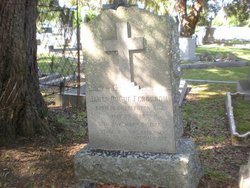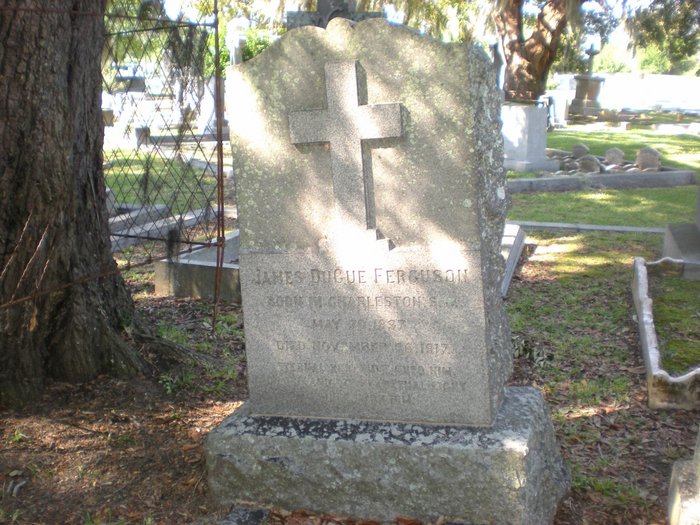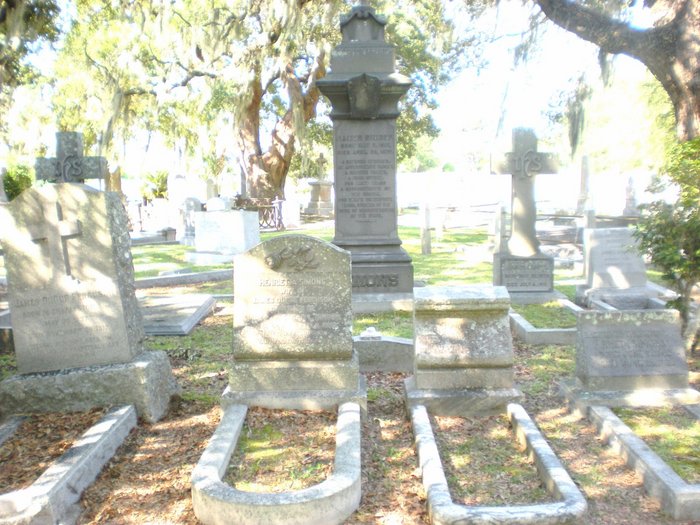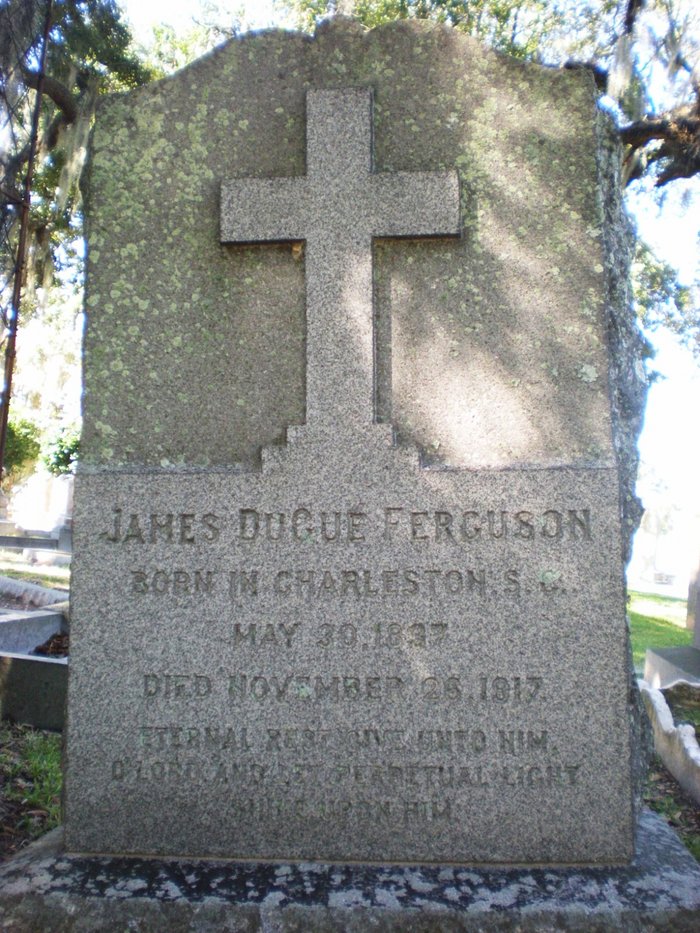Obit November 28, 1917 page 10
Distinguished Confederate veteran has passed away.
There died at Baltimore, Maryland on Monday in the eight-first year of his age, Major Dugue Ferguson, a native of Charleston, a gentleman in every sense of the word and a distinguished officer of the Confederate States army. He was the son of Colonel James Ferguson, who served in the War of 1812 as an officer in the United States army and who was the owner of Dockon rice plantation on the Cooper river. He was educated in Charleston at Cot School, at South Carolina College and the University of Virginia. Upon the completion of his college education he returned to Charleston, took up the study of law and was admitted to the bar. Major Ferguson's parents in common with the rice planters of that time, were people of means. At Dockon plantation, at the present time, however, under cultivation, is the one mile race course where the gentlemen of South Carolina in those days; often gathered for horse races and he was the owner of the famous four-mile race horse Albine, which, in a sensational race at the Washington track in Charleston in 1861, defeated the four-mile race hose Planet. Early in the war he entered the service of the Confederacy, and was assigned to duty in Virginia, where he soon became chief of staff for General Fitzhugh Lee, with whom he was on terms of the greatest intimacy until the end of that struggle. General Fithugh Lee's official report of the battle of Kellysville, Virginia, which was fought on the 17th of March 1863 contains the following statement "Capt. DuGue Ferguson rendered great service by his accurate and quick transmission of orders, and by his condut under fire". Near the close of the war Major Ferguson was taken prisoner and was confined at Fort Delaware. At the close of the war he returned to Charleston and soon afterward moved to Baltimore. He there practiced law for some time, and was elected president of the First National Bank of that city. Major Ferguson was a man of unusual culture, of charming personality, of polished and courteous manners, and of the most unselfish disposition. Of him it might be truly said:
"None knew him but to love him:
None named him but to praise."
Obit November 28, 1917 page 10
Distinguished Confederate veteran has passed away.
There died at Baltimore, Maryland on Monday in the eight-first year of his age, Major Dugue Ferguson, a native of Charleston, a gentleman in every sense of the word and a distinguished officer of the Confederate States army. He was the son of Colonel James Ferguson, who served in the War of 1812 as an officer in the United States army and who was the owner of Dockon rice plantation on the Cooper river. He was educated in Charleston at Cot School, at South Carolina College and the University of Virginia. Upon the completion of his college education he returned to Charleston, took up the study of law and was admitted to the bar. Major Ferguson's parents in common with the rice planters of that time, were people of means. At Dockon plantation, at the present time, however, under cultivation, is the one mile race course where the gentlemen of South Carolina in those days; often gathered for horse races and he was the owner of the famous four-mile race horse Albine, which, in a sensational race at the Washington track in Charleston in 1861, defeated the four-mile race hose Planet. Early in the war he entered the service of the Confederacy, and was assigned to duty in Virginia, where he soon became chief of staff for General Fitzhugh Lee, with whom he was on terms of the greatest intimacy until the end of that struggle. General Fithugh Lee's official report of the battle of Kellysville, Virginia, which was fought on the 17th of March 1863 contains the following statement "Capt. DuGue Ferguson rendered great service by his accurate and quick transmission of orders, and by his condut under fire". Near the close of the war Major Ferguson was taken prisoner and was confined at Fort Delaware. At the close of the war he returned to Charleston and soon afterward moved to Baltimore. He there practiced law for some time, and was elected president of the First National Bank of that city. Major Ferguson was a man of unusual culture, of charming personality, of polished and courteous manners, and of the most unselfish disposition. Of him it might be truly said:
"None knew him but to love him:
None named him but to praise."
Gravesite Details
News & Courier November 28, 1817 page 10.
Family Members
Sponsored by Ancestry
Advertisement
Explore more
Sponsored by Ancestry
Advertisement













